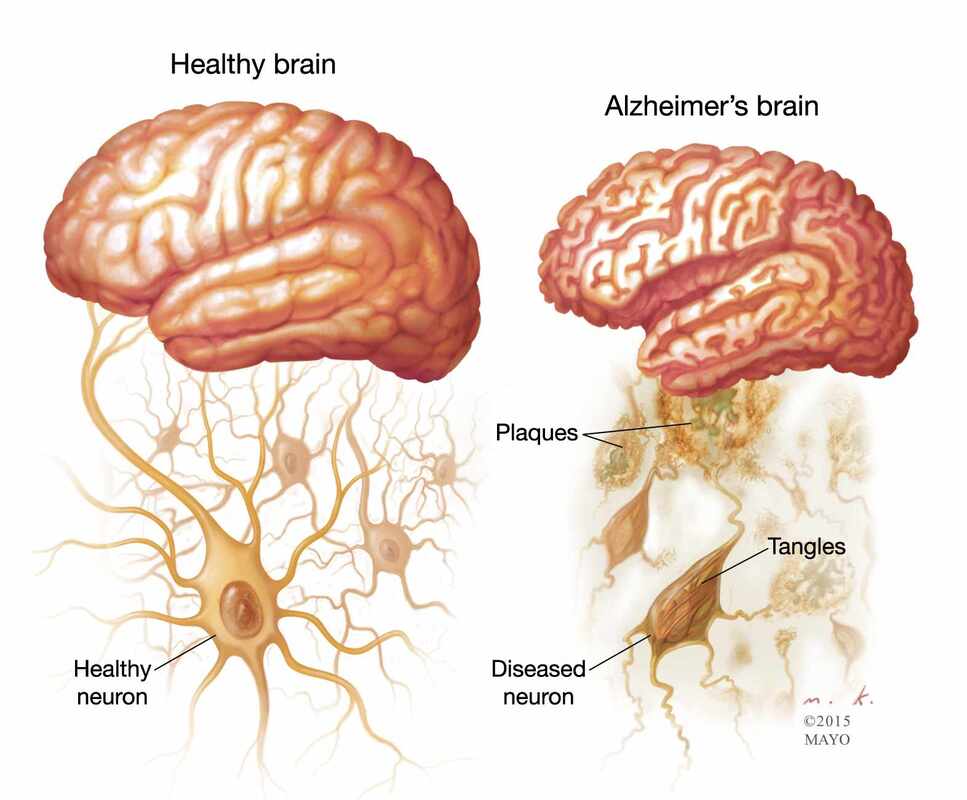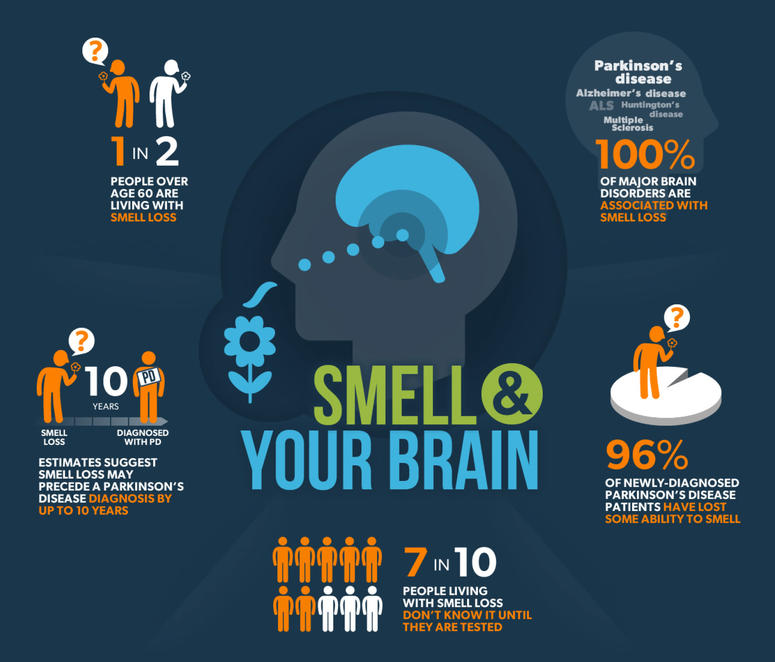The sense of smell, or olfaction, is an essential and often underappreciated sense that plays a vital role in our daily lives and overall well-being. While the sense of smell may not receive as much attention as sight or hearing, it serves a multitude of important functions that are crucial to our survival, health, and quality of life.
- Detecting Danger: One of the primary functions of the sense of smell is to alert us to potential dangers in our environment. Smells can warn us of hazards such as smoke, gas leaks, spoiled food, or chemicals. For example, the pungent smell of smoke may indicate a fire nearby, prompting us to take immediate action and ensure our safety.
- Enjoying Food and Flavor: Our sense of smell greatly influences our ability to enjoy and savor the flavors of food. The aroma of a delicious meal can enhance our dining experience and trigger feelings of pleasure and satisfaction. Without the sense of smell, our perception of taste would be significantly diminished, as much of what we perceive as taste actually comes from the aromas of the food.
- Memory and Emotion: Smells have a powerful ability to evoke memories and emotions. Certain scents can transport us back in time and bring back vivid recollections of past experiences. The connection between smell and memory is so strong that it is often referred to as the "Proustian Phenomenon," named after the French writer Marcel Proust, who famously described how a whiff of a madeleine cake triggered a flood of childhood memories.
- Social Interaction: Our sense of smell also plays a role in social interactions and communication. Human body odor contains pheromones, chemical substances that can influence social and sexual behavior. Pheromones can convey information about an individual's age, gender, and even emotional state. Additionally, the ability to detect body odors can influence mate selection and social bonding.
- Health and Well-being: Changes in our sense of smell can serve as indicators of certain health conditions. For example, a diminished sense of smell can be an early sign of neurological disorders such as Alzheimer's disease or Parkinson's disease. Loss of smell can also affect our appetite and lead to poor nutrition and weight loss. Additionally, our sense of smell can alert us to potential health risks, such as detecting spoiled food that may cause food poisoning.
- Environmental Awareness: The sense of smell helps us be more aware of our surroundings and the world around us. It allows us to appreciate the natural scents of flowers, forests, and the ocean, contributing to our overall sensory experience and connection with nature.
- Personal Hygiene: Our sense of smell is instrumental in maintaining personal hygiene. Being able to detect body odor or bad breath can prompt us to take appropriate actions to maintain cleanliness and ensure that we present ourselves well in social situations.
To experience augmented reality, please open the Facebook-app using QR code and point to the image below
Indeed, the sense of smell, or olfaction, is a remarkable and vital sense that serves a multitude of important functions in our daily lives. Our ability to detect and interpret various odors plays a crucial role in our survival, emotional well-being, and overall sensory experience.
One of the primary functions of the sense of smell is to act as a warning system for potential dangers in our environment. Certain odors, such as the pungent smell of smoke or the distinctive odor of a gas leak, can quickly alert us to hazardous situations. The olfactory system has a direct connection to the brain's limbic system, which is responsible for processing emotions and memory. This is why smells can evoke powerful emotional responses and trigger vivid memories.
Smells are closely linked to our emotions and can have a significant impact on our mood and feelings. Pleasant and familiar smells, like the aroma of freshly baked bread or the scent of flowers, can uplift our spirits, reduce stress, and create a sense of comfort and well-being. On the other hand, unpleasant or noxious odors, such as the smell of rotting food or foul substances, can trigger feelings of disgust, anxiety, or even nausea.
Interestingly, smells can also influence our behavior and decision-making. Studies have shown that certain scents can affect our perception of time, alter our purchasing decisions, or influence our attraction to others. For example, the smell of fresh-baked cookies in a grocery store can entice customers to buy more products, while certain scents have been found to enhance the perception of attractiveness in potential partners.
Moreover, the olfactory system plays a critical role in our sense of taste. In fact, much of what we perceive as taste is actually a combination of both taste and smell. When we chew food, aromas are released that travel up the back of the throat and into the nasal passages, where olfactory receptors detect them. This is why, when we have a cold and our nasal passages are blocked, our sense of taste is often diminished.
Beyond its practical and sensory functions, the sense of smell also holds a special place in our memories and personal experiences. Certain smells can trigger nostalgic feelings and transport us back in time, recalling specific events, people, or places from our past. The powerful link between smell and memory is an intriguing aspect of olfaction that continues to be studied by researchers and cherished by individuals alike.
In summary, the sense of smell is a complex and essential aspect of our human experience. It not only serves as a protective mechanism, alerting us to potential dangers, but also enriches our lives by connecting us to the world around us through emotions, memories, and sensory pleasure. From the comforting scents of home-cooked meals to the invigorating fragrance of nature, our sense of smell contributes significantly to our overall well-being and understanding of the world.
One of the primary functions of the sense of smell is to act as a warning system for potential dangers in our environment. Certain odors, such as the pungent smell of smoke or the distinctive odor of a gas leak, can quickly alert us to hazardous situations. The olfactory system has a direct connection to the brain's limbic system, which is responsible for processing emotions and memory. This is why smells can evoke powerful emotional responses and trigger vivid memories.
Smells are closely linked to our emotions and can have a significant impact on our mood and feelings. Pleasant and familiar smells, like the aroma of freshly baked bread or the scent of flowers, can uplift our spirits, reduce stress, and create a sense of comfort and well-being. On the other hand, unpleasant or noxious odors, such as the smell of rotting food or foul substances, can trigger feelings of disgust, anxiety, or even nausea.
Interestingly, smells can also influence our behavior and decision-making. Studies have shown that certain scents can affect our perception of time, alter our purchasing decisions, or influence our attraction to others. For example, the smell of fresh-baked cookies in a grocery store can entice customers to buy more products, while certain scents have been found to enhance the perception of attractiveness in potential partners.
Moreover, the olfactory system plays a critical role in our sense of taste. In fact, much of what we perceive as taste is actually a combination of both taste and smell. When we chew food, aromas are released that travel up the back of the throat and into the nasal passages, where olfactory receptors detect them. This is why, when we have a cold and our nasal passages are blocked, our sense of taste is often diminished.
Beyond its practical and sensory functions, the sense of smell also holds a special place in our memories and personal experiences. Certain smells can trigger nostalgic feelings and transport us back in time, recalling specific events, people, or places from our past. The powerful link between smell and memory is an intriguing aspect of olfaction that continues to be studied by researchers and cherished by individuals alike.
In summary, the sense of smell is a complex and essential aspect of our human experience. It not only serves as a protective mechanism, alerting us to potential dangers, but also enriches our lives by connecting us to the world around us through emotions, memories, and sensory pleasure. From the comforting scents of home-cooked meals to the invigorating fragrance of nature, our sense of smell contributes significantly to our overall well-being and understanding of the world.
The sense of smell, or olfaction, is truly remarkable in its ability to provide us with a wealth of information about our environment and the people around us. One intriguing aspect of smell is its connection to human emotions and the ways in which it can transmit subtle cues about our feelings and emotional states.
Recent research has shed light on the fascinating phenomenon of "emotional contagion" through smell. It has been found that feelings of fear and disgust can alter an individual's sweat odor profile, and these changes can be picked up by others in close proximity. This means that when someone is experiencing fear or disgust, their body releases specific chemical compounds in their sweat that are detectable by others through their sense of smell. Although most of this process operates at a subconscious level, the study published in the journal Psychological Science in 2012 demonstrated that people exposed to these odor cues could unconsciously experience similar emotions, even without knowing the cause.
This ability to detect emotional cues through smell has important evolutionary implications. In ancient times, being able to sense the fear or disgust of others in the same social group could have been crucial for survival. It would have allowed individuals to quickly react to potential threats or dangerous situations, as well as to empathize with the emotional states of their peers. This primal mechanism may still be at play in our modern society, even if we are not consciously aware of it.
It is also intriguing to consider that smell is the oldest sense in the animal kingdom. The ability to chemically detect the environment predates the development of other senses like sight and hearing. Even single-celled organisms have mechanisms to detect chemical signals in their surroundings, allowing them to navigate their environment, find food, and avoid danger.
Throughout evolution, the sense of smell has continued to play a vital role in the survival and communication of various species. In the animal kingdom, it is well-known that certain species rely heavily on their sense of smell for hunting, mating, and navigation. For example, dogs have an incredibly keen sense of smell, which is utilized in various fields, including search and rescue, drug detection, and even cancer diagnosis.
In humans, the sense of smell may not be as dominant as it is in some animals, but its importance should not be underestimated. Smell is intricately linked to our sense of taste, and together, they contribute significantly to our overall sensory experience and enjoyment of food. Smell also plays a crucial role in our memories and emotions, as certain scents can trigger vivid recollections of past events or elicit strong emotional responses.
In conclusion, the sense of smell is a fascinating and multifaceted aspect of human perception. Not only does it provide us with essential information about our environment and potential dangers, but it also serves as a conduit for emotional communication and empathy. From its ancient origins as a survival tool in the animal kingdom to its role in human emotion and memory, the sense of smell continues to be a captivating and essential part of our daily lives.
Recent research has shed light on the fascinating phenomenon of "emotional contagion" through smell. It has been found that feelings of fear and disgust can alter an individual's sweat odor profile, and these changes can be picked up by others in close proximity. This means that when someone is experiencing fear or disgust, their body releases specific chemical compounds in their sweat that are detectable by others through their sense of smell. Although most of this process operates at a subconscious level, the study published in the journal Psychological Science in 2012 demonstrated that people exposed to these odor cues could unconsciously experience similar emotions, even without knowing the cause.
This ability to detect emotional cues through smell has important evolutionary implications. In ancient times, being able to sense the fear or disgust of others in the same social group could have been crucial for survival. It would have allowed individuals to quickly react to potential threats or dangerous situations, as well as to empathize with the emotional states of their peers. This primal mechanism may still be at play in our modern society, even if we are not consciously aware of it.
It is also intriguing to consider that smell is the oldest sense in the animal kingdom. The ability to chemically detect the environment predates the development of other senses like sight and hearing. Even single-celled organisms have mechanisms to detect chemical signals in their surroundings, allowing them to navigate their environment, find food, and avoid danger.
Throughout evolution, the sense of smell has continued to play a vital role in the survival and communication of various species. In the animal kingdom, it is well-known that certain species rely heavily on their sense of smell for hunting, mating, and navigation. For example, dogs have an incredibly keen sense of smell, which is utilized in various fields, including search and rescue, drug detection, and even cancer diagnosis.
In humans, the sense of smell may not be as dominant as it is in some animals, but its importance should not be underestimated. Smell is intricately linked to our sense of taste, and together, they contribute significantly to our overall sensory experience and enjoyment of food. Smell also plays a crucial role in our memories and emotions, as certain scents can trigger vivid recollections of past events or elicit strong emotional responses.
In conclusion, the sense of smell is a fascinating and multifaceted aspect of human perception. Not only does it provide us with essential information about our environment and potential dangers, but it also serves as a conduit for emotional communication and empathy. From its ancient origins as a survival tool in the animal kingdom to its role in human emotion and memory, the sense of smell continues to be a captivating and essential part of our daily lives.
The sense of smell has long been a subject of fascination and study, and researchers have discovered several intriguing differences between men and women in this sensory domain. One notable finding is that women tend to outperform men in odor and smell identification tasks. This difference is believed to be linked to the structural and functional variations in the brain between genders.
The brain region responsible for processing smells is known as the olfactory bulb. Studies have shown that women generally have a larger olfactory bulb compared to men. Additionally, women tend to have a more developed orbital prefrontal cortex, which is involved in the processing and integration of sensory information, including olfactory inputs. These structural differences are thought to contribute to the enhanced smell identification abilities observed in women.
One theory explaining why women have a more developed sense of smell revolves around evolutionary advantages. In ancestral times, the ability to discern various scents might have been crucial for survival and reproductive success. For instance, women with a heightened sense of smell could have been better at detecting potential mates with compatible immune systems, as scent can provide valuable information about genetic compatibility. This ability could have influenced mate selection and contributed to successful reproduction.
Furthermore, a woman's superior sense of smell may have played a role in bonding and nurturing behaviors. For instance, during the early stages of motherhood, a mother's ability to identify her newborn's unique scent may have helped in fostering a strong bond between them. This enhanced sensitivity to smells could have been advantageous for detecting changes in the baby's health or emotional state.
Interestingly, the sense of smell goes beyond merely perceiving scents. It can serve as a potential indicator of an individual's overall health and even predict future health outcomes. Research has shown that the loss of smell, also known as anosmia, could be an early warning sign of certain health conditions. Studies have linked olfactory dysfunction to neurodegenerative diseases such as Alzheimer's and Parkinson's. Changes in smell perception have been observed before the onset of cognitive symptoms, suggesting that it could be an early biomarker of these conditions.
Moreover, a recent study published in the journal PLOS ONE revealed an intriguing link between the ability to identify scents and mortality. The study analyzed data from over 3,000 participants aged 57 to 85 and found that those who were unable to identify common scents, such as rose, orange, and peppermint, were more than three times as likely to die within the next five years. This suggests that the sense of smell could potentially serve as a predictor of overall health and longevity.
In conclusion, the sense of smell is a fascinating and complex aspect of human perception, with differences between men and women in terms of smell identification abilities. Women's superior olfactory skills may be related to evolutionary advantages, such as selecting compatible mates and bonding with newborns. Additionally, the sense of smell has emerged as a potential indicator of overall health, with anosmia potentially serving as an early warning sign of certain health conditions and even mortality. As research in this field continues to advance, our understanding of the intricate relationship between smell and various aspects of human life will undoubtedly deepen.
The brain region responsible for processing smells is known as the olfactory bulb. Studies have shown that women generally have a larger olfactory bulb compared to men. Additionally, women tend to have a more developed orbital prefrontal cortex, which is involved in the processing and integration of sensory information, including olfactory inputs. These structural differences are thought to contribute to the enhanced smell identification abilities observed in women.
One theory explaining why women have a more developed sense of smell revolves around evolutionary advantages. In ancestral times, the ability to discern various scents might have been crucial for survival and reproductive success. For instance, women with a heightened sense of smell could have been better at detecting potential mates with compatible immune systems, as scent can provide valuable information about genetic compatibility. This ability could have influenced mate selection and contributed to successful reproduction.
Furthermore, a woman's superior sense of smell may have played a role in bonding and nurturing behaviors. For instance, during the early stages of motherhood, a mother's ability to identify her newborn's unique scent may have helped in fostering a strong bond between them. This enhanced sensitivity to smells could have been advantageous for detecting changes in the baby's health or emotional state.
Interestingly, the sense of smell goes beyond merely perceiving scents. It can serve as a potential indicator of an individual's overall health and even predict future health outcomes. Research has shown that the loss of smell, also known as anosmia, could be an early warning sign of certain health conditions. Studies have linked olfactory dysfunction to neurodegenerative diseases such as Alzheimer's and Parkinson's. Changes in smell perception have been observed before the onset of cognitive symptoms, suggesting that it could be an early biomarker of these conditions.
Moreover, a recent study published in the journal PLOS ONE revealed an intriguing link between the ability to identify scents and mortality. The study analyzed data from over 3,000 participants aged 57 to 85 and found that those who were unable to identify common scents, such as rose, orange, and peppermint, were more than three times as likely to die within the next five years. This suggests that the sense of smell could potentially serve as a predictor of overall health and longevity.
In conclusion, the sense of smell is a fascinating and complex aspect of human perception, with differences between men and women in terms of smell identification abilities. Women's superior olfactory skills may be related to evolutionary advantages, such as selecting compatible mates and bonding with newborns. Additionally, the sense of smell has emerged as a potential indicator of overall health, with anosmia potentially serving as an early warning sign of certain health conditions and even mortality. As research in this field continues to advance, our understanding of the intricate relationship between smell and various aspects of human life will undoubtedly deepen.
Join Scentopia, Sentosa's latest tourist attraction wonderful orchid scent crafting, fragrance tour, bridal shower or corporate team building which includes perfume making onsite and offsite, beach activities and more. We also serve primary school learning journey, secondary students and pupil on industrial excursions. Know more about our orchids perfume bar or therapeutic orchid scents and other wellness aromas. Conatct Perfume workshop or book a scent crafting session here.



